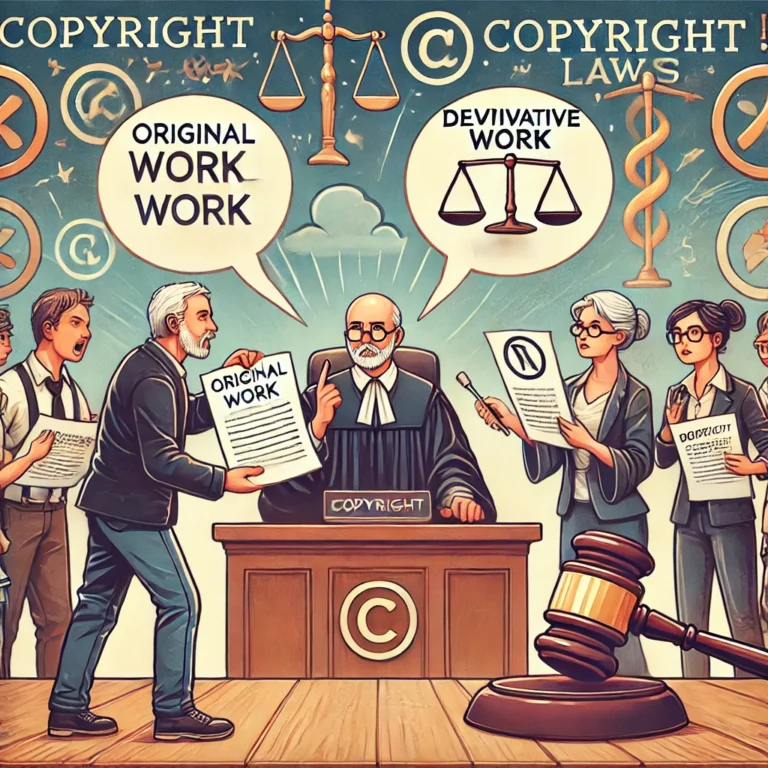Call us now:
What is a derivative work? A derivative work is a type of creation that is based on one or more pre-existing works.

What is a derivative work?
A derivative work is a type of creation based on one or more pre-existing works, but with modifications, alterations, or re-expression in a different form. Types of derivative works include:
- Translated works: These are works where the original content is converted from one language to another.
- Adaptations: These works modify the content of the original, potentially changing its genre or making alterations within the same genre to suit different contexts for use or exploitation.
- Compiled works: These are created by compiling part or all of existing works under a certain theme, potentially including commentary or evaluation.
- Annotated works: These works provide explanations of specific words, sentences, events, references, or place names from the original work.
- Selected works: These works are collections of previously published works, selected based on time or theme, including anthologies and compilations.
- Rewritten works: These involve rewriting, rearranging, or changing the form of expression compared to the original, depending on a specific purpose or requirement.
- Adapted works: These works are transformed from one art form to another or expressed through a different artistic method within the same form.
In summary, derivative works are creative outcomes based on existing works but with modifications to the content, form, or language.
Examples of derivative works
Here are some examples of derivative works:
- The Vietnamese translation of the novel “Harry Potter and the Philosopher’s Stone” from its original English version.
- The movie “The Lion King”, inspired by William Shakespeare’s play “Hamlet.” Although there are changes in genre and details, the plot shares significant similarities with the original work.
- The book “Selected Model Essays”, which compiles essays from various authors, organized by literary genres in the high school curriculum.
- The book “Annotations on The Tale of Kieu” by author A, which explains and clarifies the words, references, and historical events in “The Tale of Kieu” by Nguyen Du.
- The poetry collection “100 Best Love Poems”, selected from famous love poems by various authors across different periods.
- The cải lương (Vietnamese opera) play “Lục Vân Tiên”, adapted from the Nôm poetry work “Lục Vân Tiên” by Nguyen Dinh Chieu. The content is rewritten to suit the performance style of cải lương theater.
- The film “Romeo and Juliet”, adapted from the play of the same name by William Shakespeare. Both the content and form are changed from play to film, a different art form.
Who is the author of a derivative work?
According to intellectual property law, the author of a derivative work is the person who directly creates that derivative work based on the original work. However, the copyright of the derivative work is only protected if the creation and use of the derivative do not infringe the copyright of the original work.
The author of a derivative work is the individual (or group) who has directly undertaken tasks such as translation, adaptation, compilation, annotation, selection, revision, or transformation of the original work into a new work. For example, a person who translates a book from English to Vietnamese is the author of that translation.
A derivative work is only considered legal and protected under copyright law when it is created with the permission of the original author or the copyright holder, unless the original work’s copyright protection has expired.
Do you need permission to create a derivative work?
Question: Do you need permission to create a derivative work?
Answer: Yes, creating a derivative work requires the permission of the original author or the copyright holder. According to Vietnam’s Intellectual Property Law, using another person’s work to create a derivative work (such as through translation, adaptation, revision, transformation, compilation, annotation, or selection) requires the consent of the original author or copyright holder, unless the original work’s copyright protection period has expired.
The relationship between the original work and the derivative work
1. Derivative works depend on the original work’s content and ideas
This relationship is fundamental and essential, as derivative works are created by using or modifying part or all of the content and ideas of the original work.
Derivative works often retain part or all of the plot, theme, characters, setting, or message from the original work. Although there may be edits, additions, or changes in the creative process, the content of the derivative work still clearly reflects the influence of the original. For example, when a novel is adapted into a film, the main storyline, characters, and key events are typically preserved, though some changes may be made to suit the cinematic language.
Derivative works are based on the ideas of the original work, such as plot, philosophical themes, messages, or artistic style. These ideas serve as the primary inspiration for the derivative work. For instance, a poem can be adapted into a song, where ideas of love, sadness, or hope from the original poem are conveyed through the song’s melody and lyrics.
2. Creating a derivative work requires permission from the author or copyright holder
The author or copyright holder of the original work holds exclusive rights to its use, including the creation of derivative works. This means that no one is allowed to create, distribute, or exploit derivative works based on the original work without the permission of the author or copyright holder.
3. Respecting the original work when creating a derivative work
When creating a derivative work, full acknowledgment of the original author’s copyright is necessary. This means publicly crediting the original author or source in the derivative work to ensure that the original creator’s effort and creativity are recognized.
Derivative works should not distort, misrepresent, or improperly alter the core meaning or content of the original work. Doing so would not only infringe copyright but also risk causing misunderstandings or diminishing the value of the original work. For example, when adapting a book into a film, it’s important to maintain the spirit, message, and core meaning of the story, even if there are minor changes to suit the film medium.
Contact Us Now:
DCNH LAW
Address: 38B Tran Nhat Duat, Phuoc Hoa ward, Nha Trang city, Khanh Hoa province, Vietnam.
Phone: (+84) 343320223 – 974278893
Email: dcnh.law@gmail.com


